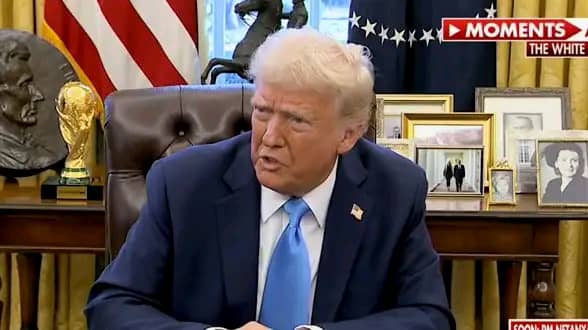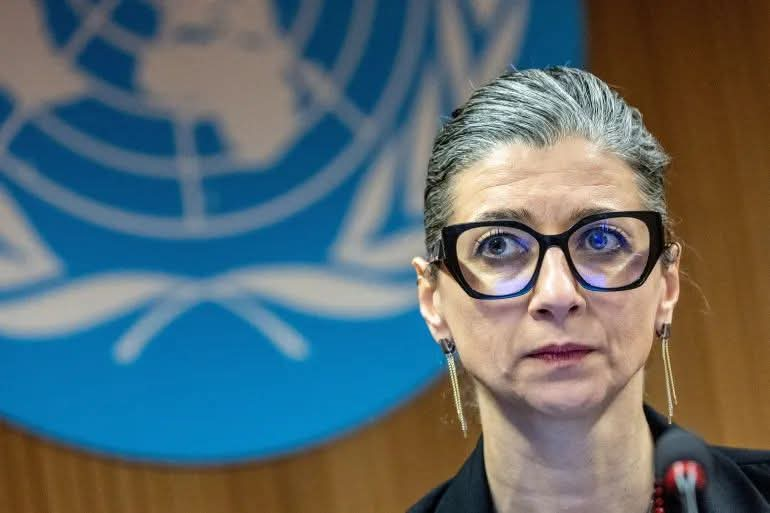By Burnett Munthali
In a move that has sparked significant controversy on the international stage, President Donald Trump has ordered the cessation of all U.S. foreign assistance to South Africa. This decision comes in the wake of what Trump called “actions by the South African government that racially disfavor landowners.” The U.S. president further announced plans to prioritize the resettling of white “Afrikaner refugees” into the United States, a policy shift that has drawn widespread criticism from human rights groups, political leaders, and the South African government itself.
President Trump’s declaration, made in a statement from the White House, marks a significant change in U.S. foreign policy toward South Africa. The move comes as a response to the ongoing land reform debate in South Africa, where the government has been working on redistributing land to address historical injustices stemming from apartheid-era land ownership policies that favored white South Africans. The reform has been a contentious issue, with some arguing that it is necessary to rectify the injustices faced by black South Africans, while others—especially white farmers—fear that it may lead to the loss of property and economic hardship.
In his remarks, President Trump said that the South African government’s policies were “unfair and discriminatory” and suggested that these actions were motivated by racial animus toward white landowners. The U.S. president also stated that his administration would take steps to protect white South Africans, specifically Afrikaners, by facilitating their resettlement into the United States. The president’s comments echoed a long-standing talking point among some of his supporters who argue that white South Africans face persecution due to the land reform initiatives.
“America has always stood as a refuge for those fleeing injustice and persecution,” Trump said in his statement. “We will not stand by while our fellow white citizens are persecuted in South Africa for the color of their skin. It is time to take action and offer them a safe haven in the United States.”
The statement has sent shockwaves through the international community, with critics questioning the legitimacy of Trump’s claims. While there is no widespread evidence of targeted violence against white South Africans due to land reform, the narrative has become a significant talking point for far-right groups both within South Africa and internationally. However, many experts have raised concerns over the president’s focus on this issue, pointing out that the vast majority of violence in South Africa stems from broader socio-economic problems, including poverty, crime, and unemployment, rather than the government’s land redistribution policies.
The South African government, led by President Cyril Ramaphosa, has strongly rejected Trump’s accusations, calling the U.S. president’s remarks “misinformed” and “divisive.” South Africa’s Department of International Relations and Cooperation issued a statement condemning Trump’s actions, emphasizing that the land reform process is necessary to address the legacy of apartheid and the racial inequality that persists in the country. The South African government also highlighted that land redistribution is being carried out in a manner that respects the rule of law and aims to promote unity, reconciliation, and sustainable development.
“President Trump’s statement reflects a misunderstanding of the reality on the ground in South Africa,” the statement read. “We are committed to a peaceful and lawful process of land reform that will empower all South Africans, regardless of race, while respecting property rights and fostering social cohesion.”
Meanwhile, human rights groups have expressed alarm at Trump’s proposed policy of resettling Afrikaner refugees in the United States, arguing that it could fuel racial tensions both in South Africa and in the U.S. Critics have also pointed out the implications such a policy would have on the broader immigration system in the United States, especially at a time when the Trump administration has faced heavy criticism for its stance on immigration and refugees. The call for the resettlement of Afrikaner refugees has been framed by some as an effort to further deepen the racial divides in both countries, rather than promoting reconciliation and understanding.
“By singling out a particular racial group for preferential treatment, President Trump is not addressing the underlying issues of inequality and injustice in South Africa,” said a spokesperson for Amnesty International. “Instead, he is creating an atmosphere of division that undermines the very principles of equality and justice.”
The decision to halt foreign assistance to South Africa is likely to have far-reaching consequences for the country’s relationship with the United States, which has been a key partner in various sectors, including development, trade, and humanitarian aid. U.S. foreign aid to South Africa has supported numerous programs aimed at improving public health, education, and governance, particularly in underserved communities. The loss of this aid could have a detrimental impact on South Africa’s efforts to address its most pressing social challenges.
In the coming days, it is expected that both South Africa and the United States will engage in diplomatic discussions to address the fallout from President Trump’s decision. With tensions already high, the international community will be watching closely to see how this latest move shapes the future of U.S.-South Africa relations, and whether it has lasting effects on the broader political landscape in both countries.
While President Trump’s order to halt foreign assistance and prioritize the resettlement of Afrikaner refugees has stirred controversy, it is clear that the issue of land reform and racial inequality in South Africa will continue to be a divisive topic, both domestically and internationally. The next steps will undoubtedly test the resilience of U.S.-South Africa relations and will require careful navigation of complex geopolitical dynamics. As the situation unfolds, it will remain to be seen how both governments respond to the challenges posed by President Trump’s controversial actions.




